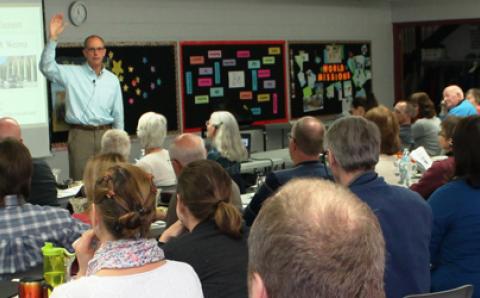Outreach
Q Some of my friends say there is no truth; everything is relative. I am intimidated to talk about Christ with them because they might say, “How can you claim Jesus is the only way? You Christians are so narrow-minded and exclusionary.” I don’t know how to respond to that.
A First, I would gently challenge the notion that there is no truth and everything is relative. When someone makes this assertion, he is saying there is no absolute truth that transcends time, place, and people. Instead, any truth claims are relative in that they are contextualized in a specific time and place for particular people. That statement itself is a truth claim: he believes that everyone must accept his statement which transcends time, place, and people. Saying, “There is no absolute truth,” then, is making an absolute truth assertion.
Second, I would validate their concern that any truth claims are, by nature, exclusionary. The moment you say “2+2=4” or “The capital of France is Paris” you are excluding everything else to be true. It sounds open-minded when someone says, “We must be tolerant to all views and beliefs.” But in reality the person is being exclusionary and intolerant toward people who disagree with her. So the most pressing question is, Whose exclusionary truth claims are best for the world?
Third, we should always lead our unbelieving friends with all of their objections and doubts before Jesus. After all, he is the One who says, “I am the way and the truth and the life. No one comes to the Father except through me.” William Willimon said, “God became a Jew who lived briefly, died violently, and rose unexpectedly” so that we may encounter the Living God in all of his truths. I would invite any doubting friends to read the gospel of John with me so that they may wrestle with Jesus with their objections and questions.
Ultimately, our job is do what Philip did for Nathaniel: to say, “Come and see!”
—Victor Ko is a church planter with mosaicHouse in Edmonton, Alberta.
Faith Formation
Q I find that I am often too busy. Sometimes it feels like the only way to fix the problem is to add something else to my schedule called “Sabbath practices”—which just makes me feel busier plus guilty when I don’t do it well. There must be a better way.
A I struggle with this issue as well. A harried state of the soul leads to nervous anxiety and spiritual dryness. What amazes me is that the same challenge is found in every kind of church setting, whether the congregation is urban, suburban, small-town, or rural. Many folks are too busy, and often this busyness hampers spiritual growth. A former student mentioned that he had heard Bill Hybels describe the problem this way: “I’m too busy doing God’s work for God to do his work in me.”
There is a bit of good news: because this problem is epidemic in proportion, strong resources are available. In Reformed circles, these range from Don Postema’s classic Space for God to Philip Reinders’s Seeking God’s Face to the newly published Soul Keeping by John Ortberg.
Resources like these are helpful for personal devotions, small group study, silent prayer retreats, and as a guide for a three- to four-week sermon series. I find the sermon series especially helpful, because it invites an entire community to address the issue together.
For some people, the practice of speaking with a spiritual director once every two months or so has become a helpful habit. Such a person can provide wise discernment for ordering one’s life in a more godly manner.
—Syd Hielema is a team leader for CRC Discipleship and Faith Formation Ministries. He is a member of Meadowlands Christian Reformed Church in Ancaster, Ontario.
Justice
Q How do you deal with disappointment and discouragement in justice work?
A A friend asked this question on a “down” day. I had just read evidence showing that a policy “win” in access to health care for aboriginal children is not being implemented as intended. First Nations children are still being denied services that non-aboriginal children receive, in spite of the advocacy work that had been done to get the Canadian Parliament to unanimously adopt a policy to end such practices. It was a common-sense principle to treat the child as needed and sort out the funding issues between federal and provincial governments later. This policy was named Jordan’s Principle in honor of a child who died in the hospital while government agencies fought about who should pay for home care. For once it seemed real progress had been achieved toward justice for aboriginal children. Reality now showed a hollow victory.
“Not well” was my answer that day. On reflection, I can list some tools to help me bounce back on bad days, such as working with allies, reminding myself that God is in control, praying, reading psalms of lament, recalling the need for persistence, and celebrating small steps along the journey. The only option not on the table is giving up, because the call to seek justice is an elemental part of being faithful. So it is back to work to advocate for full implementation until all children have equitable access to healthcare.
—Kathy Vandergrift is a public policy analyst living in Ottawa, Ontario.






